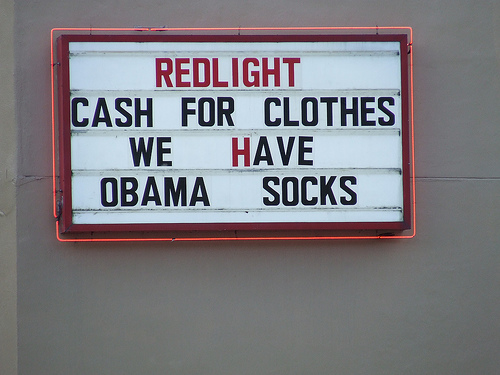Radical moderation: Our pragmatist in chief
By Caroline O'Donovan

Radical moderation: Our pragmatist in chief
By Caroline O'Donovan
On Tuesday, delegates to the Democratic National Convention descend on Charleston, North Carolina to nominate Barack Obama for President for the second time. With the presidential election to follow in two months, the time is nigh to ask what a second Obama term might look like. Of course, the outcome of the congressional election would be a major part of that equation, but, unburdened from the concern of reelection, what kind of leader would Barack Obama be? In the 2013 State of the Union, what would President Obama likely outline as his major goals?
Julie Cutler is a political consultant with Compass Media. Were Obama to be reelected, she says, there would be a lot of pressure on him from supporters to follow through on some major issues that were shelved during his first term for political reasons. In addition to jobs and the economy, these include core progressive issues like the closing of Guantanamo Bay and regulations for big business.
Should the Democrats lose the Senate, Cutler says, “It’s difficult to imagine where they’d find common ground” with Republicans. At best, we might see some progress in foreign policy and education. On the other hand, it’s possible that we could see the electorate reject the Tea Party in the House, signalling what Cutler calls a shift in the tenor of American politics.
Typically, second term presidents are weakened by the lack of political clout they can offer in exchange for “hard votes” from legislators, says William Howell, a professor of Political Science at the University of Chicago, where he teaches a course called “The American Presidency.” Though he says there are many reasons to believe Obama will win the election this fall, Howell doesn’t see a productive second term for Obama in terms of landmark policy. “Right now,” says Howell, “the environment in DC can’t sustain a second term president setting the agenda on a contentious issue”
That means, should Obama win reelection, we probably won’t see sweeping, comprehensive bills on immigration or the environment. That’s what George W. Bush tried in 2004, according to Howell, and it was a major flop. Instead, expect to see Obama dedicate his second term to ensuring that the work accomplished in the first four years, like the passage of the Affordable Care Act, is seen through to fruition. For Obama, that will mean a lot of “bureaucratic maneuvering” and “working around Congress rather than meeting with Republicans behind closed doors.” Luckily, Howell thinks Obama will succeed, saying “this President is no stranger to federalism.”
One fact, however, is that a president’s approval rating is almost guaranteed to go down with the passage of time. Many voters, especially liberals, had exceedingly high hopes for the Obama presidency, hopes Howell says were impossible to meet. “They thought they were getting a kindred spirit who would not only fearlessly advance their own policy agenda but would do so in away that transcend partisan divisions. What we had and what we have is a pragmatic, largely centrist president who is perfectly willing to deal with people with whom he disagrees.”
We’ve seen this pragmatism throughout roughly the last year, says Howell. Obama has increasingly acted unilaterally since the debt ceiling debacle of 2011, and Howell believes we will continue to see Obama as a reserved leader and a moderate. As a result, “it may well be that the willingness of people on the ideological left to continue to lend their support to this president in his second term would wane.” These same individuals might also be uncomfortable with an increasingly hawkish Obama, someone who has proved more than comfortable ramping up the US’s use of clandestine drones. With no solution in sight to Guantanamo and the potential for Obama to make a bold move on Iran, it’s possible that for some progressives disillusionment could become something of an understatement by 2016. “The problems he would confront would not just be among Republicans but among members of his own party.”
Of course, by and large, an Obama second term would be defined by his ability to create job growth and pull the economy definitively out of its current malaise. Voters “sense that Washington isn’t working amidst a massive economic crisis,” says Howell, “a crisis out of which we are crawling, but barely.”
William Howell joins Eight Forty-Eight on Tuesday morning along with Julie Cutler to make predictions about an Obama second term. To contribute your hopes for the coming four years, or to test out your own predictions, call 312.9239.9239 or tweet at us at #848.
